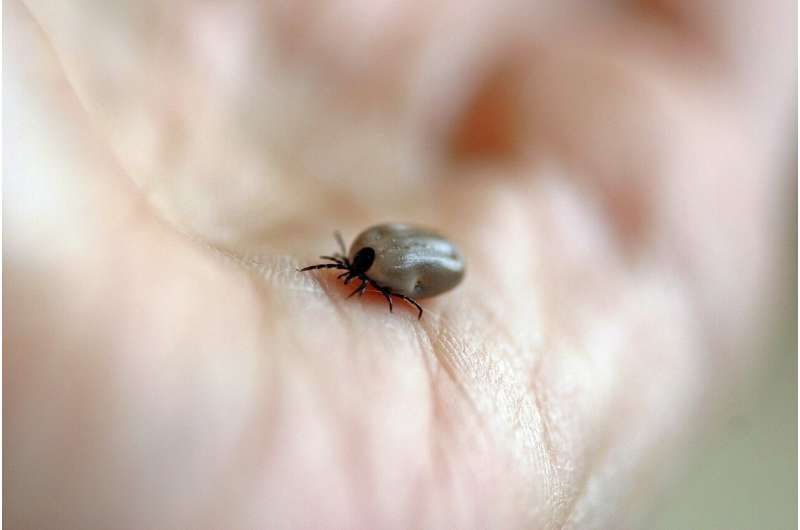Credit: CC0 Public Domain
Ticks discovered in New Jersey now have spread into neighboring states. "For the first time in 50 years, a new tick species has been identified in the U.S.," says Dr. Gregory Poland, director of the Mayo Clinic Vaccine Research Group.
"Haemaphysalis longicornus, or the Asian longhorned tick, is in eight states already in the Northeast region of the U.S., primarily affecting livestock."
Dr. Poland says the longhorned tick is prolific and can lay as many as 2,000 eggs at a time. "In Asia, it causes a devastating disease called "SFTS"—severe fever and thrombocytopenia syndrome. About 15% of those people have died. It has not happened in the U.S. yet, but epidemiologists are watching closely," says Dr. Poland.
A unique characteristic of the longhorned tick is its ability to quickly reproduce. Dr. Poland says the tick is known to be an aggressive biter causing great stress to its host. According to the Department of Agriculture, the longhorned tick has been found in New Jersey, Pennsylvania, New York, Maryland, Virginia, West Virginia, North Carolina, and Arkansas.
The Centers for Disease Control and Prevention says tick-borne illnesses such as Lyme disease have doubled over the past 13 years. Lyme disease is the most common, accounting for approximately 82% of all tick-borne cases.
Dr. Poland says two recently discovered viruses, the Heartland and Bourbon viruses, also may be connected to ticks, but researchers do not yet have enough information.
"It makes the point that what is happening in medicine with the new biology, with new genetic kinds of testing, and ever increasingly sophisticated testing is we are recognizing more and more viruses, more and more changes in the human body related to infections, related to what kind of microbes you carry in your gut," says Dr. Poland.
"There is a lot of new science that's going to happen over the next decade or two."
©2019 Mayo Foundation for Medical Education and Research
Distributed by Tribune Content Agency, LLC.
























